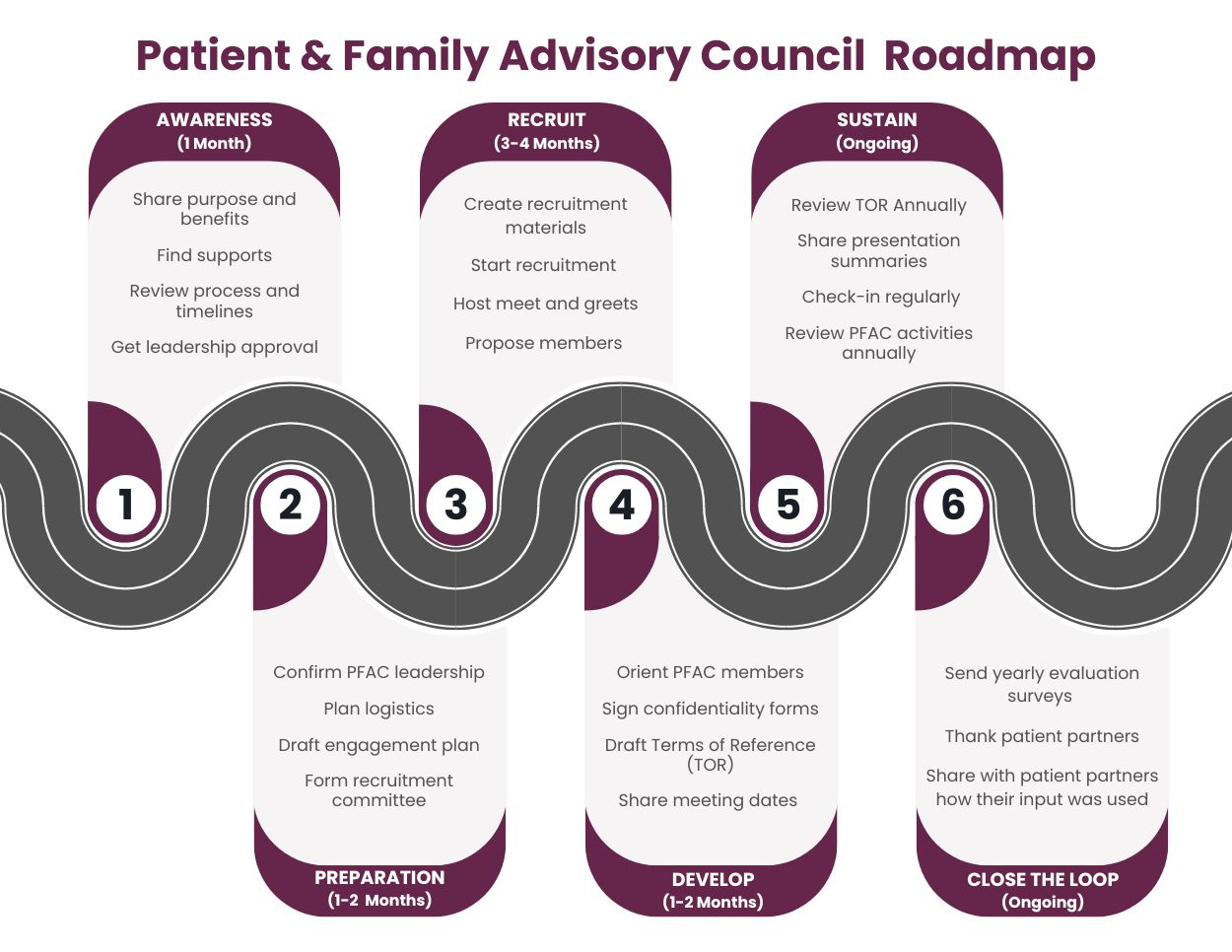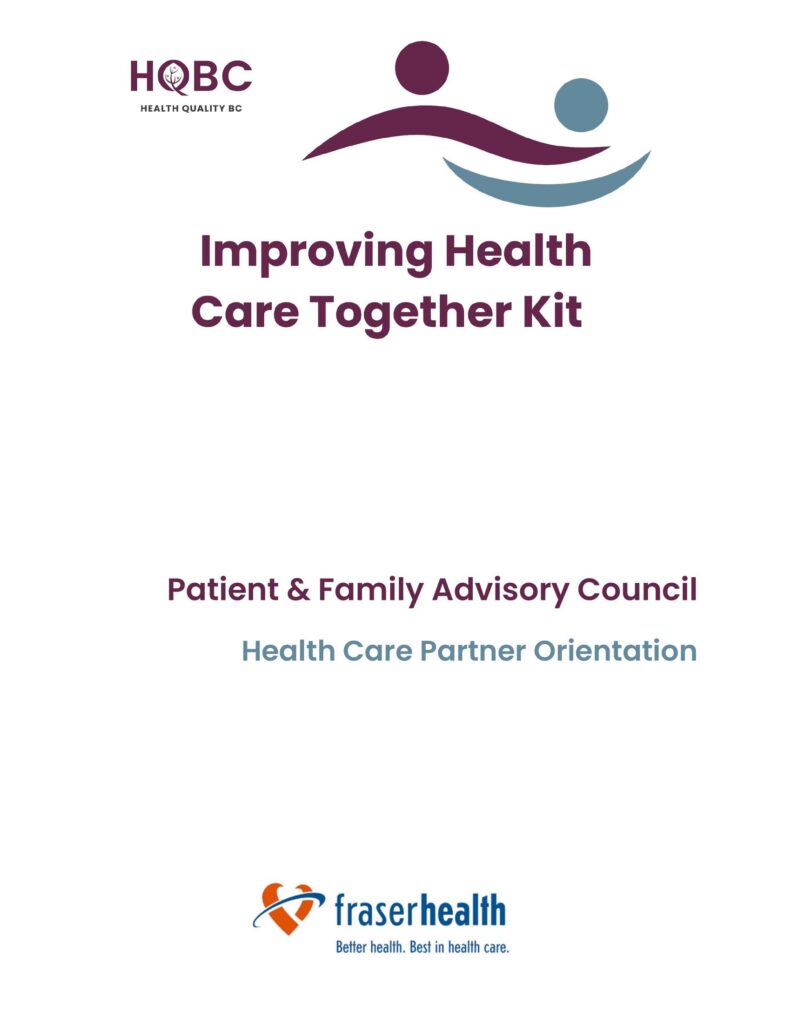If you are looking to engage with patients and families in health care planning and don’t know where to start, the new Improving Health Care Together Kit by Health Quality BC, developed with Fraser Health, is your guide to creating or strengthening Patient & Family Advisory Councils (PFACs). The goal is to make partnerships the easy and natural choice for both patients and health care partners.
Health care teams in BC have been creating PFACs for years, with varying levels of success. Many started by searching online for tools and advice, trying to figure it out on their own. But they all shared one goal: learning from real examples in BC. This kit highlights Fraser Health’s commitment to supporting this work and Health Quality BC’s dedication to showcasing successful collaboration across the province.
That’s why Health Quality BC and Fraser Health teamed up to create this kit. It’s packed with practical tips, tools, and templates to help you build or improve your PFAC with confidence.
We asked two of the key reviewers of the PFAC kit—Laura Klein, Clinical Practice Consultant with Fraser Health, and Amanda Cronkite, patient partner—to share their thoughts on PFACs and the kit.
Why PFACs Matter: Building Connections That Improve Care
At the heart of every successful PFAC is the ability to build connections that improve care. Strong Patient & Family Advisory Councils (PFACs) aren’t just about improving health care processes—they’re about fostering meaningful relationships. These councils create a two-way dialogue between health care teams and the people they serve, ensuring care is shaped collaboratively.
“PFACs allow services to be planned with patients and families, not just for them,” says Laura Klein, Clinical Practice Consultant at Fraser Health. Patient partner Amanda Cronkite adds: “It is much about the human connection element that comes with PFACs. PFACs give us a voice in shaping the care we receive while building trust and collaboration.”
The Road to a PFAC: A Flexible Framework
So, how do you get started—or refine your approach? The PFAC Kit provides a flexible framework to guide your journey. This roadmap isn’t meant to be one-size-fits-all or prescriptive—it reflects the Fraser Health experience and can be adapted to suit your own context.

“This roadmap is a great starting point for anyone new to engagement,” says Laura. “Yes, creating a PFAC requires commitment, resources, and capacity, but don’t let that discourage you. Even if you’re just beginning, this kit provides the support you need to succeed.”
“At the heart of this kit is the comprehensive roadmap that will guide professionals and patient partners through the key resources and steps. It helps to prepare and understand the roles and responsibilities that come with PFACs,” says Amanda.
Self-Directed, Module-Based Learning
The PFAC Kit is self-directed, making it easy to use on your own schedule. The five modules cover everything you need to know, including:
Adaptable templates are included in a downloadable ZIP file to save time and effort. “This kit helps reduce the legwork for health care partners, making it easier to build capacity across BC,” says Laura. “As people move between health organizations in BC, having a shared resource like this supports consistent and effective engagement.”
Be Inspired to Act
We all want a high-quality, sustainable health care system that reflects the needs of those it serves. PFACs foster understanding, share experiences, and build relationships that benefit everyone. It’s about collaboration—talking with, not at, each other.
“For me, the PFAC has shown the compassion health care teams have in their commitment to improving outcomes and fostering meaningful partnerships,” Amanda shares. “Being part of a PFAC has helped me see how we can work together to enhance care and make more informed decisions while embracing the rich diversity within health care.”
Laura adds: “Fraser Health has made PFACs a priority in improving person-centred care. Many health care partners see the value of engagement but may not have the time or resources to plan creatively. The PFAC Kit simplifies the process and shows them how to get started.”



